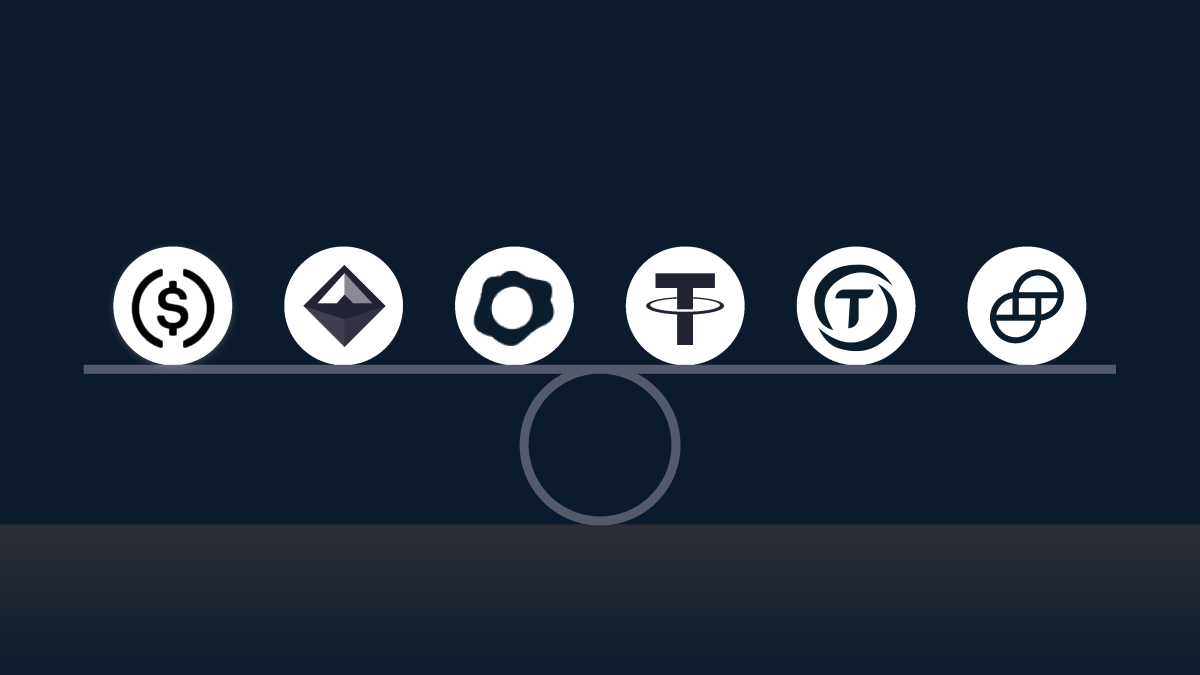Circle CEO Calls for Global Standards as Stablecoins Gain Traction
16.09.2024 14:00 2 min. read Kosta Gushterov
Circle, the company behind the USDC stablecoin, is optimistic about the mainstream adoption of stablecoins as a key component of digital finance.
Dante Disparte, Circle’s CSO, believes that stablecoins will become essential for internet-based transactions and financial services, signaling their long-term presence in the financial landscape.
Disparte also stressed the importance of global regulatory consistency, arguing that all stablecoin issuers should adhere to uniform standards for reserves and financial crime prevention. Circle is set to move its headquarters to New York by early 2025 and has filed for an IPO, reflecting its commitment to integrating into the U.S. financial system.
The U.S. currently allows state-level regulation of payment systems, while other countries manage these at a national level. Disparte called for federal regulations for stablecoins to address potential regulatory gaps and prevent misuse. He supports the recent stablecoin legislation proposed by the House Financial Services Committee, which he believes will ensure compliance with anti-money laundering and other financial regulations.
In Europe, the Markets in Crypto-Assets Regulation (MiCA), which began to take effect in June, offers comprehensive regulatory guidance. Circle has complied with MiCA, becoming the first major stablecoin issuer to do so. However, Disparte noted that MiCA may need updates, like MiCA 2.0, to address emerging areas such as decentralized finance.
The stablecoin market is becoming more competitive, with new players like PayPal’s USD-pegged stablecoin and Ripple’s upcoming Ripple USD. Tether’s USDT remains the largest stablecoin, and the total market cap for stablecoins hit a record $168 billion in August. Disparte encouraged other companies to adopt rigorous regulatory standards to contribute to the growth and stability of the stablecoin ecosystem.
-
1
FTX Pushes to Dismiss Billion-Dollar Claim from 3AC
23.06.2025 15:00 1 min. read -
2
BIS Slams Stablecoins, Calls Them Ill-Suited for Modern Monetary Systems
26.06.2025 9:00 1 min. read -
3
ARK Invest Cashes In on Circle Rally as Stock Soars Past $60B Valuation
24.06.2025 19:00 1 min. read -
4
Trump’s ‘Big, Beautiful Bill’ Approved: What It Means for Crypto Markets
04.07.2025 7:00 3 min. read -
5
FTX Pushes Back Against $1.5B Claim From Defunct Hedge Fund 3AC
23.06.2025 11:00 1 min. read
Top 10 Biggest Crypto Developments This Week
The latest WuBlockchain Weekly report captures a high-volatility week in crypto. From Bitcoin’s new all-time high to controversy around Pump.fun’s presale and Elon Musk’s political Bitcoin endorsement, markets are witnessing sharp shifts in momentum and policy.
Federal Reserve Chair Jerome Powell Reportedly Weighing Resignation
U.S. financial circles are bracing for a potential shake-up as reports suggest Federal Reserve Chair Jerome Powell is considering stepping down.
Peter Schiff Warns of Dollar Collapse, Questions Bitcoin Scarcity Model
Gold advocate Peter Schiff issued a stark warning on monetary policy and sparked fresh debate about Bitcoin’s perceived scarcity. In a pair of high-profile posts on July 12, Schiff criticized the current Fed rate stance and challenged the logic behind Bitcoin’s 21 million supply cap.
Report Claims That Binance Played a Foundational Role in the Creation of Trump Related StableCoin
Changpeng Zhao, the former CEO of Binance, reportedly supported crypto projects linked to the Trump family while privately seeking a presidential pardon, according to a July 11 report by Bloomberg News.
-
1
FTX Pushes to Dismiss Billion-Dollar Claim from 3AC
23.06.2025 15:00 1 min. read -
2
BIS Slams Stablecoins, Calls Them Ill-Suited for Modern Monetary Systems
26.06.2025 9:00 1 min. read -
3
ARK Invest Cashes In on Circle Rally as Stock Soars Past $60B Valuation
24.06.2025 19:00 1 min. read -
4
Trump’s ‘Big, Beautiful Bill’ Approved: What It Means for Crypto Markets
04.07.2025 7:00 3 min. read -
5
FTX Pushes Back Against $1.5B Claim From Defunct Hedge Fund 3AC
23.06.2025 11:00 1 min. read


